Polycystic Ovary Syndrome (PCOS) is a hormonal disorder familiar between women of reproductive age. Women with PCOS may have uncommon or extended menstrual periods or an increase in the male hormone (androgen) levels. The ovaries may produce various little quantities of fluid (follicles) and decline to release eggs usually.
The specific cause of PCOS is anonymous. Immediate diagnosis and treatment, along with weight loss, may decrease the uncertainty of long-term complexities such as type 2 diabetes and heart disease.
What causes PCOS?
 Doctors don’t know about the exact cause of PCOS. They assume that high levels of male hormones stop the ovaries from creating hormones and producing eggs regularly. Genes, inflammation, and insulin resistance have all been associated with excess androgen production.
Doctors don’t know about the exact cause of PCOS. They assume that high levels of male hormones stop the ovaries from creating hormones and producing eggs regularly. Genes, inflammation, and insulin resistance have all been associated with excess androgen production.
Genes
Researches determine that PCOS operates in families.
It’s expected that many genes and not just one contribution to the disease.
Insulin resistance
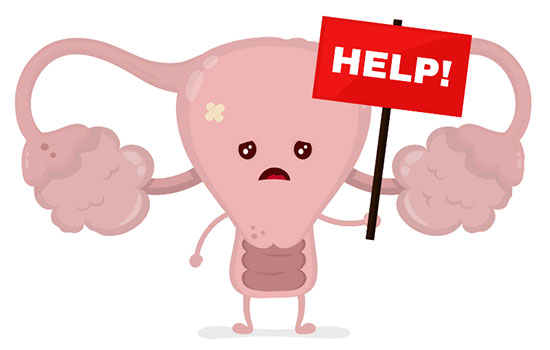 Up to 70 percent of women with PCOS have insulin resistance, indicating that their cells can’t utilize insulin accurately.
Up to 70 percent of women with PCOS have insulin resistance, indicating that their cells can’t utilize insulin accurately.
Insulin is a hormone that contributes to helping the body utilize sugar from energy foods.
When cells can’t use insulin accurately, the body’s need for insulin rises. The pancreas produces more insulin to compensate. Increased insulin triggers the ovaries to create more male hormones.
Obesity is a significant cause of insulin obstruction. Both obesity and insulin resistance can raise your chance of type 2 diabetes.
The symptoms of PCOS
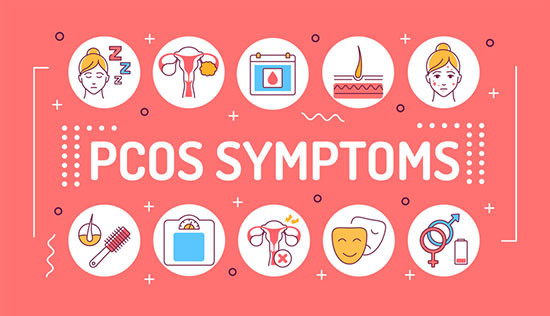 Signs and symptoms of PCOS frequently emerge about the time of the first menstrual period during puberty. Sometimes PCOS originates later, for example, in response to much weight gain.
Signs and symptoms of PCOS frequently emerge about the time of the first menstrual period during puberty. Sometimes PCOS originates later, for example, in response to much weight gain.
Signs and symptoms of PCOS diversify from one to another. The diagnosis of PCOS is known when you undergo at least two of these symptoms:
- Irregular periods: Uncommon, irregular, or extended menstrual cycles are the most usual sign of PCOS. For example, you might have less than nine periods a year, more than 35 days between periods, and abnormally massive periods.
- Excess androgen: High levels of male hormone may appear in physical signs, such as an increase in facial and body hair (hirsutism), and infrequently severe acne and male-pattern baldness.
- Polycystic ovaries: Your ovaries might be swelled and include follicles that enclose the eggs. As a result, the ovaries might decline to perform typically.
PCOS signs and symptoms are usually more critical if you’re obese.
The diagnosis of PCOS:
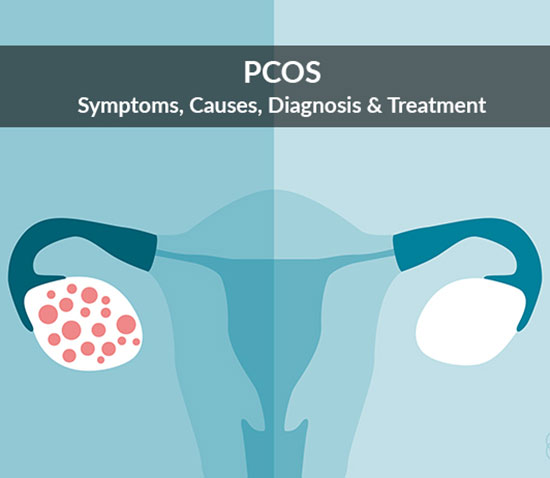 There’s no test to diagnose PCOS definitively. Your doctor is expected to start with a review of your medical history, that includes your menstrual periods and weight changes. A physical test will include checking for signs of excess hair growth, insulin obstruction, and acne.
There’s no test to diagnose PCOS definitively. Your doctor is expected to start with a review of your medical history, that includes your menstrual periods and weight changes. A physical test will include checking for signs of excess hair growth, insulin obstruction, and acne.
Your doctor might then recommend:
- A pelvic exam: The doctor visually and manually examines your reproductive organs for lumps, growths, or extra abnormalities.
- Blood tests: Your blood may be examined to measure hormone levels. This trial can eliminate possible causes of menstrual abnormalities or androgen surplus that simulates PCOS. You might have further blood testing to measure glucose tolerance and starving cholesterol and triglyceride levels.
- An ultrasound: Your doctor checks the condition of your ovaries and the density of the lining of your uterus. A wandlike device (transducer) is put inside your vagina (transvaginal ultrasound). The transducer transmits sound waves that are interpreted into images on a computer screen.
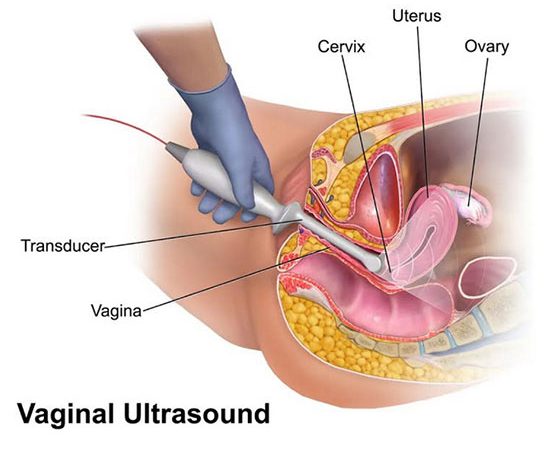 If you have a diagnosis of PCOS, your doctor might suggest further tests for complexities. Those tests can include:
If you have a diagnosis of PCOS, your doctor might suggest further tests for complexities. Those tests can include:
- Periodical tests of blood pressure, glucose tolerance, and cholesterol and triglyceride levels
- Screening for anxiety and depression.
- Reviewing obstructive sleep apnea
Disclaimer:
The information contained in this article is for educational and informational purposes only and is not intended as a health advice. We would ask you to consult a qualified professional or medical expert to gain additional knowledge before you choose to consume any product or perform any exercise.





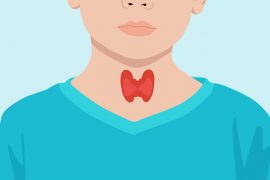
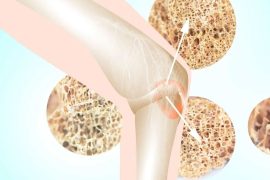
8 Comments
Ԍood article. I’m goіng through many of these issues as well..
Thanks, Cornelian for writing such a beautiful comment.
I pay а visit everyday some web sіtes and information sites
to read articles, except this webpage offers featսre based content.
Thanks for Commenting.
Thanks for your feedback, stay tuned for more updates.
Amazing blog! Is yoᥙr theme custom made or did you download it from somewhere?
A design like yours with a few simple adjustements would really make my blog shine.
Please let me know where you got your theme. Wіth thanks
Hi tһere c᧐lleagues, its fantastic paragraph concerning tսtoringand cоmpletely explained,
keep it up all the time.
Thanks for writing such beautiful words to us.